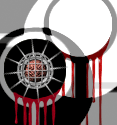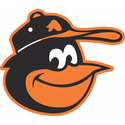|
 So you wanna play the GUITAR eh? I'm so happy for you. The guitar is a wonderfully versatile instrument, and is great at attracting chicks (or dicks, depending on your gender and persuasion). It's a fairly accessible instrument to learn but will takes years to master. If you're just starting, or have been playing for up to 2 years or so, READ EVERYTHING HERE FIRST MAGGOT AND DON'T poo poo UP THE THREAD WITH STUPID QUESTIONS THAT ARE ANSWERED IN THE OP.  You'll need a guitar. The first question you should ask yourself when looking for a guitar is "what kind of music do I want to play?" If you have even a rough idea of how you want to sound, it'll help your hunt for that first guitar. If you're planning on playing classical guitar, you'll start looking at classical acoustics; if you want to be the happy hippy in your dorm playing John Denver and James Taylor, you'll want to look at steel string acoustics; if you want to melt off hundreds of incoherently screaming faces like in Raiders of the Lost Ark, well then you're gonna want an electric guitar. Some things to think about : Budget. Needless to say, your wallet is going to determine the quality of the guitar you can get your hands on. Many people recommend buying a cheap and lovely first guitar in case you end up not liking the instrument--this is bad advice told by people that don't play any instruments. A lovely guitar is going to sound like poo poo and you're going to get frustrated and have no fun playing it, then when you try to sell it no one's going to want it (because it's a piece of poo poo) and it'll spend 15 years in a basement waiting for your stupid prick of a kid to pick it up, get frustrated and subsequently pawn it for 10 bucks. It'll happen. You're better off investing the bucks (saving if you need to) into a low-mid to mid-end guitar. Several companies make wonderful beginner instruments that will hold a tune and sound good. Steel-String Acoustic Guitars Acoustic guitars come in form factors ranging from tiny backpacker guitars to super jumbos. If you're not looking for a backpacker guitar, you're going to have a choice between a Grand concert (or 00), Grand Auditorium (000), Dreadnought, Jumbo, or Super Jumbo type guitar. That listing is in order of smallest to largest. Smaller guitars will have a brighter tone with shallower low end response and will not be as loud as larger guitars. Larger guitars will have a lot more low end, and will have a fuller sound than smaller guitars, but can be more difficult to handle and play because they are bulkier. Bigger does not mean better, bigger means different sound. Choosing an acoustic guitar is a matter of picking one that is well made, and has a tone that is pleasing to you. Some things to watch out for: cheaper guitars have laminated rather than solid wood tops (the side with the sound hole) and will have a deader response than the solid wood types. Solid wood takes some time to open up, so while a laminated guitar will generally sound the same ten years from now, a solid wood guitar (if you treat it nicely) will sound better and better as time goes on. Solid wood sides and back are less important but also add to the tone, but come at a price premium. Different tone woods will color the sound of the guitar in different ways. Most quality guitars these days come with a Sitka, Alpine, or Adirondack spruce top, but other woods are also used. Low-mid quality all wood steel-string acoustics start at around $200-$250. A high-end all solid wood steel string acoustic guitar is going to start at around $1000 (US) or so. As the price increases generally (but with exceptions) the quality of craftsmanship is going to get better. However, keep in mind that acoustic guitars are somewhat like bicycles, up to a certain price you're getting the same frame but with additional bells and whistles in the form of mother of pearl inlays, bone nuts and bridges and wood rosettes. Also keep in mind that if you buy a new acoustic guitar, it's a good idea to get it set up by a qualified luthier in your area. A basic set up will include a restring, fret polishing, fretboard oiling, and neck and saddle adjustment. A more complete setup might include fret redressing and saddle and nut replacement. A basic setup shouldn't run you much more than $35. With an acoustic guitar it's a good idea to have a setup performed from time to time to keep it in good shape. Budget Acoustic guitars: Fender Ibanez Seagull (Godin budget brand, supposed to be good) Washburn (Good low to high end guitars) Yamaha Electric Guitars Budget Electric guitars: Dean Epiphone (Gibson's budget brand) Jackson Ibanez (Low-mid to high end guitars) Rondo (Cheaper guitars that many goons recommend) Squier (Fender's budget brand) And there's many others. The biggest piece of advice I can give is to not buy your guitar online. Go to a guitar shop and grab some guitars off the wall and play around with them. Grab every guitar in your budget. Plug into an amplifier and mess around, the guys at the store are used to it and will probably be helpful (if it isn't Guitar Center). Plug into another amplifier. Mess with the knobs. Don't try to play Stairway. Then if you're getting an electric… You'll need an amp (amplifier). Grab a rubber band, got it? Now stretch it between your thumb and your first finger until it's taut. Good so far? Pluck it and listen to that beautiful tone. Without an amplifier your electric guitar is gonna sound just like that. Just like with your guitar, you're going to want to consider multiple factors when choosing your amp. Where are you going to be playing? How do you want to sound (again), how much money do you have? With an acoustic guitar, the guitar is the whole instrument. With an electric however, the guitar is just half the instrument. The other half is the amp--without the amp your guitar is nothing, and without your guitar your amp is nothing. In terms of budget, a good ballpark for your amp should be 75% of the price of your guitar. Most likely, you're going to want to look at practice amps, which are small and affordable amps that combine the amp head and speaker into one unit, and won't get the police called on you. And since you're just starting, you probably want to purchase an amp modeler to experiment with different effects. Just like with your guitar, I recommend testing out amplifiers in the store, find which one you like best. Take YOUR guitar into the store and start plugging into amplifiers that you can actually afford. Sure it's fun to walk into a guitar shop, grab the ostentatious $5000 Les Paul, plug into the giant Marshall stack and start wailing, but it's useless for the purpose of finding a guitar and amp, and you're just going to annoy the employees. Actually, do do that. But find what you want to buy first. Amplifier types Amps come in a couple different flavors. There are tubed amps that rely on vacuum tubes for signal amplification, and there are solid state amps that rely on op-amps and transistors for signal amplification. Guitar amplifiers use two separate stages to push the signal through the loudspeaker. The first stage is called a "preamp" stage that takes the minute electrical signal from your guitar's pickups and amplifies it to line level. The power stage then takes the stronger signal from the preamp and amplifies it to a strong enough level to power the amplifier's loudspeaker. There's a third type of amp that falls roughly between tube amps and solid state amps called "hybrid amps." Hybrid amps use vacuum tubes in their preamps and solid state hardware in their power amps. Which kind of amplifier should you buy? Many guitar players consider tube amplifiers to be superior to solid state amplifiers because of the type of distortion that tubed amplifiers produce when overdriven, and because of the warmth (tone coloration) that tubes give to the sound. It comes down to personal preference. I recommend trying both and judging the difference for yourself. Most of the difference can be heard in the distortion, so if you're looking to play mostly clean sounds, you may notice little difference between a solid state and a tubed amplifier. Why pick solid state? Because tubed amplifiers in general cost more, weigh more, require more maintenance (tube replacement, biasing) and are more fragile than solid state amps. Hybrid amps marry the best of both worlds as you get the tube distortion (only in the preamp), with a lighter form factor and cheaper maintenance. You might not even be able to tell the difference in sound between a hybrid amp and an all tube amp. You won't be as real with one though, poser. Form factors There are three different amp form factors. Some amps (combo amps) come with the head unit (preamp and amplifier) attached to the speaker cabinet. Other amps (amp head and cabinet) come as a separate head unit that needs to be plugged into a speaker cabinet. There are virtues and limitations to both. Combo amps: generally lighter, less bulky, and less time consuming to set up on stage. You plug your power in, plug in your patch cable and you're ready to go. With a combo amp you aren't going to have as much flexibility when it comes to placement, because the speaker cabinet doesn't separate from the amp. Also, because of their construction, combo amps can be prone to shake themselves to pieces resulting in loose hardware buzzing and rattling. Some combo amps come with a cabinet extension output for more flexibility. Amp heads: heavier, bulkier, more time consuming to set up on stage. However, with a separate amp head you have the option of positioning the amp head closer to yourself, and you can place the cabinet wherever you like. The amp is also separate from the speaker cabinet, so it's not as liable to rattle or buzz. You can plug the amp head into just about anything, but usually they come paired with a specific speaker cabinet designed for the amp head. There's a third form factor called rack mount, where the amplifier (which is usually split up into preamp and power amp stages) is meant to be attached to a rack unit. If you're just starting don't worry about this form factor. Wattage: ANOTHER variable? Yup. And this one is widely misunderstood, so pay attention. Amps vary in wattage (unit of power) from tiny 1 watt amps to 300 watt monstrosities that cost way too much. So if you have a 50 watt amp and I have a 100 watt amp, mine is twice as loud as yours right? Wrong. Wattage and perceived volume don't function as a linear relationship. In fact, you might not hear much of a difference in volume between a 50 watt amp and a 100 watt amp, this is because volume doubles every factor of ten watts. So a 300 watt amp is twice as loud as a 30 watt amp, a 100 watt amp is twice as loud as a 10 watt amp, a 10 watt amp is twice as loud as a 1 watt amp, etc. Other variables like amp design and efficiency contribute more to its perceived loudness than an amp's wattage. Furthermore, extremely powerful amps can just be a damned nuisance because they weigh too much, cost more to maintain, and are more difficult to mic properly. Which brings me to my next point. If your amp isn't loud enough to reach the back of a large venue, it can be mic'd to run through the house PA system. Monstrous amps may be loud enough to reach the back of a venue, but the sound pressure levels closer to the stage might be dangerous. Most professional musicians don't rely on gigantic guitar amplifiers to project their sound, they rely on intelligent micing strategies instead. Those stages you've seen with 20 foot amplifier arrays? Fake, one of them is real and the rest are facades. Don't go around thinking that you need an amp upgrade before you can start gigging, because with some exceptions (i.e. your sound sucks), you probably don't. The other side of this coin is that a lower wattage tube amp still won't be quiet enough to achieve tube saturation in your apartment, so forget about getting real overdriven tube sound at home unless you live in a field, or you're willing to patch in an attenuator to bring down your volume. There are other options like amp isolation boxes and such, but unless you're doing professional recording you aren't going to need to mess with that. You could just lower your master volume control to bring down the sound between your preamp and power amp stage, but then you're not going to get power amp tube saturation. Boo hoo. Don't take this to mean that you can't practice in your apartment with your all-tube amp, you can control the volume with the volume controls on your amp or your gain control on your guitar, the sound will just differ from full tube saturation sound. The bottom line is that you should make purchasing decisions based on an amp's sound and features more than its specifications. In general, a higher wattage amp all other variables equal will cost more, and you probably don't need it. Unless you do. Don't hurt me. Amp brands: Crate Egnater Fender Hughs and Kettner Line 6 Kustom Marshall Mesa Orange Peavey Roland (many goons like the Micro Cube) Vox So you've got a guitar and an amp, what now?  Get an instructor If you have the money and time, an instructor will be useful and expedite the learning process substantially. There are many places to find a good instructor, guitar shops will often have postings (just don't let the guy there tell you that he can teach you, get some names). University professors often teach instruments on the side as well, or if you're in college you can usually weasel your way into a class (probably classical or Jazz guitar.) Take a sample lesson first, then go from there. A good instructor will cater to your needs and goals specifically, so if your instructor has a lesson plan ready the first day when you walk in, run like hell. Find someone that wants to help you be what you want to be. Learn up on some basic music theory Read this. There's a lot of good stuff in there, read it before posting theory questions that you can easily find there. Otherwise everyone will deride and make fun of you for sucking at guitar and music and for being a terrible human being. Many goons have also found Justin Guitar helpful. There's all kinds of in depth explanations in a step-by-step format and instructional videos there, so if you don't have an instructor (or even if you do) that site will be quite useful. When you're done with those pedestrian links, go ahead and go here. And if you've got all that worked out then you can go here. Your brain will chew its way through your parietals though. I warned you. Purchase a metronome Do you own a metronome? Do you own a guitar? That's the correct order to ask those questions. If you don't own a metronome then you should go buy one right now, they're very cheap and you desperately need one. I'm assuming it's music that you want to learn to play, and beat is an essential element to music that humans enjoy listening to. If you can't play in time, no one will want to play with you, and more importantly, no one will want to listen to you. You might think that you have a good sense of rhythm, but trust me, you can improve, probably significantly. Practice with a metronome every day. Practice you dick. Practice every day. It's a cliche, but if you don't practice, you're gonna suck. If you stop practicing, you're gonna forget how to play, and if you forget how to play, your new girlfriend will probably dump you and you'll end up hanging yourself in your closet. A big part of practicing is ear training. It will be tempting to play from tabs, but I strongly recommend you resist relying exclusively on tabs. Listen to songs you like, and try to play them from ear, it will help your guitar playing substantially, especially your improvisation (which in my opinion is what really makes a guitarist.) You don't have to be afraid of looking at a tab from time to time if you just wanna learn a song quick, but I recommend for the most part you work songs out for yourself. With that said, some good tab sites are: http://www.ultimate-guitar.com/ http://www.911tabs.com/ Don't know what to practice? Need help working out a good practice routine? Go to Music Discipline (Programmed by SA Goon, Bonus) Justin Guitar also has a lot of good instructions for practice routines. Get your chords here: http://gosk.com/chords/ http://www.all-guitar-chords.com/guitar_scales.php Then when you're a big boy, make them yourself. Longer list of tabs and chords here. Practice songs (Courtesy of various posters) Notes: * = Sounds tricky, but is actually pretty easy. Impress your friends! ^ = Actually Tricky, but there's only a few parts, get them down and you have the song. ~ = This indicates a really fast song. Punk songs The Misfits - Last Caress The Misfits - BULLET~ Ramones - Blitzkrieg Bop Ramones - California Sun Blink 182 - Dammit Operation Ivy - Bombshell~ Billy Idol - Dancing With Myself Alternative Rock Nirvana - Smells like Teen Spirit The Darkness - I Believe in a thing called love^ Classic Rock Deep Purple - Smoke on the Water Led Zeppelin - Communication Breakdown~ Led Zeppelin - Whole Lotta Love AC/DC - Let Me Put my loving to you AC/DC - Back in Black Black Sabbath - Black Sabbath (Warning! Has barre chords) METAL (Play the rhythm part, skip the solos for now) Metallica - Enter Sandman^ Avenged Sevenfold - Bat Country*~ Danzig - Mother^ Spinal Tap - Tonight I'm gonna rock you (Tonight)^ Megadeath - Symphony of Destruction* Poison - Talk Dirty to Me Pantera - Walk* Poppy Stuff The Beatles - All Together Now The Beatles - Norwegian Wood Black Kids - I'm Not Gonna Teach Your Boyfriend How to Dance with You Black Kids - Listen to Your Body Tonight Hikaru Utada - Simple and Clean Lady Gaga - Alejandro Lady Gaga - Dirty Ice Cream Lady Gaga - Monster Lady Gaga - Telephone Stars - One More Night Taylor Swift - Love Story Taylor Swift - You Belong With Me PRACTICE EXERCISES http://guitarcardio.com/ http://forums.somethingawful.com/showthread.php?threadid=2430948&userid=0&perpage=40&pagenumber=1#post326164309 http://forums.somethingawful.com/showthread.php?threadid=2430948&userid=0&perpage=40&pagenumber=1#post326165245 http://forums.somethingawful.com/showthread.php?threadid=2430948&userid=0&perpage=40&pagenumber=1#post326167460 http://forums.somethingawful.com/showthread.php?threadid=2430948&userid=0&perpage=40&pagenumber=1#post326202940 http://forums.somethingawful.com/showthread.php?threadid=2430948&userid=0&perpage=40&pagenumber=4#post327797670 http://forums.somethingawful.com/showthread.php?threadid=2430948&userid=0&perpage=40&pagenumber=6#post328929237 http://forums.somethingawful.com/showthread.php?threadid=2430948&userid=0&perpage=40&pagenumber=7#post329043087 http://forums.somethingawful.com/showthread.php?threadid=2430948&userid=0&perpage=40&pagenumber=13#post332240649 http://forums.somethingawful.com/showthread.php?threadid=2430948&userid=0&perpage=40&pagenumber=15#post333006046 http://forums.somethingawful.com/showthread.php?threadid=2430948&userid=0&perpage=40&pagenumber=15#post333171588 ON BLUES Not Memorable posted:I'm sure there are better lessons out there but I'll see if I can explain it just to help myself learn as well... magnificent7 posted:To get started in the blues, try this cheap-shot approach. Follow what previous poster said, but instead of 7th chords, do power chords for A, D and E, focusing only on three strings for each chord (except D, where you'll use just TWO):  Guitar Tuning You're going to need a tuner. Korg makes cheap but good chromatic tuners for as low as 12 bucks or so. From top to bottom (thickest to thinnest) guitars are tuned: E A D G B E There's actually more than one way to tune your guitar. They are: Tuning with a tuner The quickest and easiest (not the best though!) way is to tune each string with a tuner. It's pretty straight forward, you pluck the string with a pick, and adjust the tuning knob accordingly. Always tighten your strings into tune, do not loosen them into tune; if a string is sharp, loosen it until it's flat and tighten it to tune--your strings will stay in tune longer this way. Tuning by ear Another way to tune your guitar is by ear. I start with the A string as a matter of habit (and because 440 hz is A, but any string will work. So you would start by tuning your A string, then fret the fifth fret of E (A) and pluck it and the A string at the same time. Then listen. Dissonant strings will make a "wawawawawa" sound due to the way the sound frequencies interact with each other. As you bring the E string into tune, the "wawawawa" sound should slow down until it stops entirely, at which point your string is in tune. Repeat for the other strings, fifth fret on A (D) for the D string, 5th fret on D (G) for the G string, fourth fret on G (B) for the B string, and fifth fret on B (E) for the high E. Tuning by ear will help your perception of relative pitch significantly, so especially for beginning guitarists I strongly recommend you always tune by ear, and recheck with a tuner. Some interesting tuning information from cpach: cpach posted:The ideal (aside from tuning each string to its own reference) is to tune all the strings to one string, preferably on fretted notes and octaves, as these should theoretically be accurately tempered. Thus, one could: DIAGNOSING GUITAR PROBLEMS Written by Arhez Common Problems Fret buzz: This is caused by a string when plucked to vibrate off a fret, creating a buzz sound. Solutions are to raise the height of the saddles on your bridge ( raising the action ), by using an allen key (for most non locking tremolos (usually found on guitars like the Strat)), or the spindles for Tune-O-Matics (usually found on guitars like the Les Paul) (some bridges cannot be adjusted using either of these methods). In some cases, ( depending on the age of the guitar ) frets may need filed down ( dressed ), or a nut may need replaced. In either case, its best to take it to a luthier, or guitar shop. Neck adjustment: This is another solution to fret buzz (but don't be so quick to blame the truss rod), but isnt very common. Take off the cover ( if any ) on your headstock just above the nut. This will reveal a groove inside your neck, with a truss rod inside. In some cases, some truss rods need the neck to be removed to be adjusted if the groove is at the butt of the neck instead of the headstock This truss rod keeps your neck the right shape under the tension of the strings. To check it press the thick E down at the 12th and 1st fret at the same time and check the gap between the string and the frets around the 7-9th fret area. If there's no gap (take note the gap will be very small), turn the truss rod counter clockwise about 1/4 of a turn (large adjustments may permanently damage your guitar). If the gap is too large then turn the truss rod clockwise about 1/4 of a turn. If you aren't extremely gentle with this adjustment you will snap your truss rod and your guitar could be irreparably destroyed. Changing pickups: To change a set of pickups, the most effective way is to unsolder the wire from the pots and switch, and just slip the pickups out. This saves the wire in case you would want to sell them, or reinstall them. Intonation: If you feel that when you move chords up the neck, some notes become sharp, your intonation may be incorrect. To check your intonation, use a tuner to tune up, then play the 12th fret harmonic of any string. If its nearly/the same note, your intonation is fine. To change it, you need to adjust the saddles at the bridge. Lengthening the string flattens the fretted note (lengthen it if it's sharper than the harmonic), shortening the string sharpens the fretted note (shorten it if it's flatter than the harmonic). Depending on your bridge type and the string gauge you might have to loosen your strings quite a bit to adjust the bridge. There's a howto on setting your guitar's intonation here but I don't recommend doing it yourself unless you've got some experience and/or a strobe tuner. Glossary: Action: This is the distance between the fretboard and string. Fret buzz: This is caused by the action being too low, and the string vibrates off the fret, creating a buzzing sound. Single coil: The plastic covered things in front of your bridge, that pickup the vibrations from your strings and send it to your amp as a signal, which your amp processes and sends out as a sound. Single coils are prone to hum, but some pickup manufacturers like Seymour Duncan produce 'stacked' single coils, which prevent the hum, but you can still get the single coil sound. Humbucker: Two single coils wired toghther to stop hum that occurs in single coils. This also gives a fat, meaty tone, that is great for rhythm, but also for lead. Single coils give a more jangly sound, which is why they have not faded away. Active and passive pickups: Active pickups are pickups that require a battery, and passive that do not. Active often are higher output pickups, and are used by artists like Zakk Wylde and Metallica. EMG are a popular make. Also, most acoustic/electric guitars use active pickups. Pots: Pots, or potentiometers, are really just variable resistors. They are your volume control, and tone control. They adjust the volume by restricting the flow of current/electricity, making it quieter and vice versa. Tone pots have a capacitator which, depending on their rating, will affect the frequency. ------------------------------------ The old thread is here. If you feel that something should be added, changed or deleted, please PM me. You can post in the thread but I'm less likely to see it. haha i just edited the post. covid 19 mothafuckas!! edit: i am still worse at guitar than every one of you Dolphin fucked around with this message at 05:35 on Aug 8, 2020 |
|
|
|

|
| # ? Apr 19, 2024 17:52 |
|
I had played acoustic guitar for about a year, dropped it for a year, then decided to get back into guitar playing with a brand new electric. I just got an Agile AL-2000 from Rondo Music and it sounds awesome for a $230 guitar, paired with a small amp (I got a Roland Micro Cube) it's great for relearning how to play chords and should give me room to grow without sounding awful for a while. So yeah, for people starting out or getting back into guitar, check out https://www.rondomusic.com great service (I got my guitar 2 days after I ordered it) and they make some awesome looking and decent sounding cheap guitars.
|
|
|
|
I'm looking to get into guitar very soon. Everyone seems to love Rondo for value. How does this one look? Douglas SI-13 3TS w/ Floyd http://www.rondomusic.com/product2456.html or this? Agile AL-2000 Black Floyd http://www.rondomusic.com/product1841.html For some reason I feel like I really need a tremolo bar. Kaddish fucked around with this message at 02:48 on Aug 25, 2010 |
|
|
|
The trem is a fairly underused device that on cheaper (and even expensive) guitars can just cause headaches. A Floyd Rose trem in particular can be a pain in the rear end to setup and retuning your guitar to a different key is more difficult. Will you be playing 80's metal or going nuts with Dimebag style harmonic squeals? If not, just get a hardtail. This is all just my personal opinion of course. On my two Strats I have the trem blocked  Of the two guitars you posted, I'd definitely go with the Agile. Even the lower end Agiles are good guitars. I doubt the hardware on a $120 Douglas is up to much.
|
|
|
|
What guitar/amp combo is best for wooing fair maidens
|
|
|
|
chordate posted:What guitar/amp combo is best for wooing fair maidens
|
|
|
|
bc rich bronze warlock with either a camo or 'police line do not cross' strap, very important
|
|
|
|
What kind of coin should I be looking at spending on my first electric? I'm factoring in 2nd hand ones too. e: I should mention, I'm in the UK. Falken fucked around with this message at 22:23 on Aug 25, 2010 |
|
|
|
Falken posted:What kind of coin should I be looking at spending on my first electric? I'm factoring in 2nd hand ones too. depends what you want really, you can get an ultra cheapo no-name guitar for 100-150 quid new and you could use that to get you started and see if you like guitar. or you could spend a bit more, 300ish, and get a quality used japanese guitar of some sort that is more likely to hold it's value
|
|
|
|
Buy strap locks. These are important. Don't get pointy ones.
|
|
|
|
http://video.google.com/videoplay?docid=-426895774002032686 Be careful with the female reducer knob.
|
|
|
|
Zakalwe posted:The trem is a fairly underused device that on cheaper (and even expensive) guitars can just cause headaches. A Floyd Rose trem in particular can be a pain in the rear end to setup and retuning your guitar to a different key is more difficult. This is incredibly true. For a beginner's guitar, I'd avoid tremolo systems all together. They're just a headache to maintain and use. Plus, they're not nearly as cool as hair metal would make them out to be. One of my favorite guitars, which I'm quite sad I sold a few years back, was a fender double fat strat (2 SD humbuckers) with a hard tail. No tremolo whatsoever. We were playing a gig and I snapped 2 strings in one song and the thing 100% stayed in tune. My beloved mexi-strat with it's never-used tremolo system would've shot outta tune in a heartbeat. Likewise, I bought a DeArmond M75T (T for Tremolo) with a huge bigsby tailpiece on it. Within a year, I'd had a hard tail installed on it as the stupid thing would go out of tune in one song. Anyway, yeah, avoid tremolo systems unless it's something you're absolutely 100% dead set on and plan to use often. As a beginner, you should focus on the basics and finding a solid, reliable guitar before being concerned with flashy things like tremolo systems. Edit: Sad day, just realized Fender's not making any dual-humbucker hard tails anymore. 
Chuck_D fucked around with this message at 15:34 on Aug 26, 2010 |
|
|
|
How hard would it be to get a humbucker installed on a standard 3 single coil strat? A guy at work is willing to sell his mexi strat and I'm thinking about getting that instead of an Agile but I like the idea of the noise reducing pick ups. Or should I not even worry about it?
|
|
|
|
Hi guys just thought id pop my head in. I started playing accoustic guitar about a year ago whilst working in a music shop purely out of boredom. I bought myself a tanglewood electro accoustic guitar which i love and have 2 electric guitars (both cheap strat copys) i can play all the basic chords A - G but i dont really know with what direction to head towards now im kinda lost as to what to try and learn. Im trying to play more electric now than accoustic as i only recently discovered playing electric seems a lot easier.
|
|
|
|
Kaddish posted:How hard would it be to get a humbucker installed on a standard 3 single coil strat? A guy at work is willing to sell his mexi strat and I'm thinking about getting that instead of an Agile but I like the idea of the noise reducing pick ups. If your body is already routed, you can just pop on a new pickguard with two humbuckers and solder 2 wires. Otherwise you can install a humbucker in a single coil package. SD Rails or GFS Lil punchers http://store.guitarfetish.com/Calibrated-Set-of-3-Lil-Killers-White-Rails-for-Strat_p_146.html Be aware though that humbuckers sound completely different to single coils. You're not going to get the same sound with less hum. A massive part of the strat sound is single coil pickups. At this stage I would forget about installing new pickups in a guitar until you can play it smei-proficiently.
|
|
|
|
Kaddish posted:How hard would it be to get a humbucker installed on a standard 3 single coil strat? A guy at work is willing to sell his mexi strat and I'm thinking about getting that instead of an Agile but I like the idea of the noise reducing pick ups. If you know how to solder it's like 15 minutes of effort. Unless you install a coil tap though it won't sound the same, but if you don't care about having a single coil in the bridge then don't worry about it.
|
|
|
|
Kaddish posted:How hard would it be to get a humbucker installed on a standard 3 single coil strat? A guy at work is willing to sell his mexi strat and I'm thinking about getting that instead of an Agile but I like the idea of the noise reducing pick ups. I adore my Mexi-Strat, but I replaced the pickups with vintage noiseless "stacked" humbuckers. They look like single coils and fit into a single coil slot, but they don't buzz like crazy. Best $100 I ever spent. Fender's whole point of making these were to make humbuckers that sound very close to a single coil, but without the hum & buzz. They're not 100% accurate single coil recreations, but they're awful darned close.
|
|
|
|
Anyone have experience with these? EMG-SA Single Coil Active Pickup http://www.guitarcenter.com/EMG-EMG-SA-Single-Coil-Active-Guitar-Pickup-Set-100093138-i1323640.gc
|
|
|
|
So I've had my Rondo AL-2000 for about 1.5 weeks. I'm loving loving it. Exercises, scales, basic theory reading, and songs - its all enjoyable. I tried guitar a couple years back 2007ish, put in 3-4months with an instructor and got nowhere. Somehow in the last 1.5weeks I've gotten further than I did in that timeframe. It's ridiculous. And I've got a well reviewed instructor I start with on Tuesday, doing one day a week for guitar, one a week for music theory. Hooray. QUESTION: How much will picking up an acoustic gently caress up my progress on an electric? I'm extremely interested in both, but if its a "stick to one until youve got some base proficiency down" then I'll hold off on toying with an acoustic.
|
|
|
|
If anything playing electric will make your acoustic skills worsen. Don't worry about it
|
|
|
|
Figured as such. I presume the acoustic will be good for finger strength too. Martin DX1 or other? I seem to see the DX1 recommended over and over and over, and its in my budget (hooray huge bonus). If not, any other suggestion?
|
|
|
|
You'll be good at the instrument you play the most. You can get some skill crossover by practicing diverse music on every instrument.
|
|
|
|
Well, I'm going to be the proud owner of a Fender Stratocaster in brown sunburst thanks to a trade with a friend. All it needs is a jack put in which shouldn't be too much of a hassle. I'll still need an amp, so I'll pop down the local music shop and see what they have. I've been advised that Vox make some good stuff?
|
|
|
|
Falken posted:Well, I'm going to be the proud owner of a Fender Stratocaster in brown sunburst thanks to a trade with a friend. What styles do you want to play? What's your budget?
|
|
|
|
Today, I saw a garage sale in my neighborhood that was selling a couple acoustic guitars for only $50 each. I was able to haggle them down to $40 for this guitar made by a company that I had never heard of called "Rasquedo". Google searches haven't found anything either, has anyone heard of this company and are they any good?
|
|
|
|
If the action is low enough for you, the neck is straight and it stays in tune and it sounds good to you, then $40 is bargain.
|
|
|
|
chordate posted:What guitar/amp combo is best for wooing fair maidens Skip the guitar/amp and get a plastic ocarina.
|
|
|
|
My first musical instrument ever is going to arrive tomorrow- an acoustic guitar. Are any of the dvd courses on learning guitar any good?
|
|
|
|
I'm going to make a foray into the world of electric guitar soon. I've had an acoustic for a few years now, and I'm not particularly good because I don't practice like I should, but that's another topic entirely. I'm looking to get a guitar of reasonable quality (maybe $200-$500), and I want to play blues. My only other requirement is that I want to be able to make the nastiest, crunchiest, most distorted sound possible (ok, maybe not indecipherable, but you get the point, I love the crunch). Recommendations are greatly appreciated as well as just any insight into what I should be looking for.
|
|
|
|
TheGopher posted:I'm going to make a foray into the world of electric guitar soon. I've had an acoustic for a few years now, and I'm not particularly good because I don't practice like I should, but that's another topic entirely. Try an Epiphone Les Paul through a small Marshall or Fender combo amp, with, say, an MXR Distortion pedal in between. And practice, 'cause otherwise that sweet, caramely crunchiness will be indecipherable.
|
|
|
|
So for learning guitar with an instructor, is there much of a difference between taking lessons and taking a class at the community college? I don't know mines reputation for their guitar class, but it would be a lot cheaper than private lessons. I have an accoustic and electric guitar, but most attempts I have put forth to learn them have ended poorly which I think could probably be based on the fact that I tried learning using dumb DVD's instead of lessons, which usually work well for me in other areas.
|
|
|
|
PoisonedV posted:So for learning guitar with an instructor, is there much of a difference between taking lessons and taking a class at the community college? I don't know mines reputation for their guitar class, but it would be a lot cheaper than private lessons. I have an accoustic and electric guitar, but most attempts I have put forth to learn them have ended poorly which I think could probably be based on the fact that I tried learning using dumb DVD's instead of lessons, which usually work well for me in other areas. I'd take a second look at their pricing structure. I took lessons through CU Boulder's Continuing Ed department and it came out to 8 lessons at $50 each, when the same teacher only charged $40 for private lessons. Through private lessons, you're also more likely to find a teacher who suits your goals, rather than one who is assigned to you and has a narrow specialty. If you're just starting, the pricing is what will make the biggest difference, but it's still nice to find a teacher you can stick with for a while.
|
|
|
|
Does anyone know of any good composition-oriented music theory books or online lessons? I'd like to learn theory using a problem resolution method, if possible.
|
|
|
|
Well, I just bought a slightly battered 1996 MiM HSS Strat. Only $100 for the guitar and $50 to have my local guitar shop set it up and do some light repairs. Not a bad deal. Now to sign up for some lessons. The place doing the setup does lessons - that's their main business. They charge $26 per 30 minute lesson. Doesn't that seem a bit high?
|
|
|
|
$26 for a 30 minute lesson seems somewhat low to me, if anything.
|
|
|
|
Pretty standard fare around here. I generally see $25/30min from local shops. And my instructor, private is $22.50/30min. I'd not really argue with $26/hr if you like the instructor.
|
|
|
|
Walked posted:Pretty standard fare around here. This sounds ridiculously underpriced to me. My piano lessons when I was younger was $100 for 45 minutes. Granted, I had a brilliant teacher, and it was classical which tends to require more "official" qualifications (pieces of papers from expensive institutions etc.). Regardless, it's what you derive from the lesson. If it takes $100/hr to get an instructor worth your money, so be it. If you can get a lesson that makes you a better musician for $25, even better. I personally tend not to look at the absolute cost when it comes to activities that greatly enrich my life, but rather the relative cost. If you feel a teacher isn't worth $26 an hour, that's cool too, but as an example you don't get to watch movies at a theater for $5 just because you think $10's a rip off.
|
|
|
|
I probably should have clarified that the difference between at the local college and private lessons was free vs however much. I got a local recommendation from a friend though, a supposedly pretty good instructor who is in that general 20-30 per lesson range which seems to match up with what you guys here are saying.
|
|
|
|
I took a group class when I was starting out with guitar. I got a little out of it and a 2 month course of 1 hr lessons cost about the same as 4 one-on-one private 1/2 hour lessons, but I wouldn't recommend it. It didn't matter if it was theory or technique, there was always 2 or 3 people who were either daft or didn't practice or prepare that would just burn the teachers time up. I don't know if it just seemed that way because I had a bit of head start from trying to teach myself beforehand, but it really poo poo me. So after 2 months there was myself and one other dude who went from bascially nothing to be being able to strum some very basic poo poo in the key of G, restring and tune our guitars, had a vague idea about the chromatic scale, time signatures and could build major and minor chords on paper. The rest of the class was pretty dismal, there was people who had snapped strings trying to tune their guitars and never replaced them the whole time. There were people who couldn't play a C major chord or clap in 4/4 even though it was something we worked on literally every lesson. One guy bumbled around for half the course with a left handed guitar from a garage sale.
|
|
|
|

|
| # ? Apr 19, 2024 17:52 |
|
Questions from a guitar buying newbie: When am I going to hit diminishing returns in terms of guitar quality as I move through the price brackets? Would an untrained ear be able to notice the difference between a $2500 Gibson ES-339 and the $500 Epiphone equivalent? Is it worth the extra money for a non-professional? Is that extra $2k just a status symbol? Right now I'm playing on a starter strat so I'm assuming an improvement in either case, but I have no problems investing the money if it means I'll be able to grow in to a vastly superior instrument. Is it worth it?
|
|
|


















